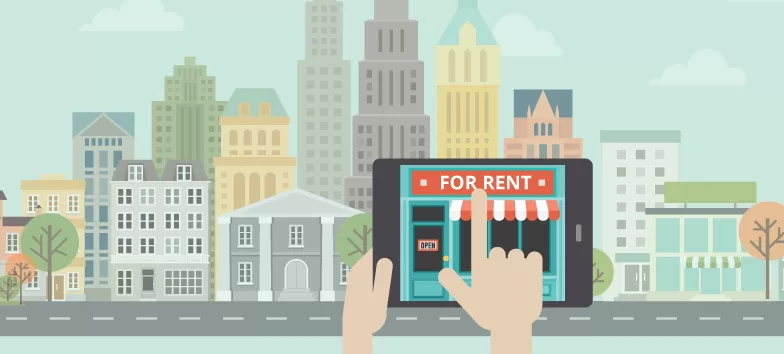It’s not enough to simply have a glitch-free event anymore. Event planners are looking for new and exciting ways to creating lasting memories and experiences around their events. A not-so-new, but more recent trend gaining ground in the events industry, is that of pop-up events. Unfamiliar with the term? Pop-up events are temporary events hosted in unique venues ranging from temporary fixtures in open public spaces to unused retail space. Short-term rentals are becoming easier and quicker to come by, giving pop-up events the ability to grow within the events market. Pop-up events are growing in number and size, but they aren’t necessarily a new concept. Consider Halloween costume stores: they “pop-up” right around Halloween and then they’re gone in a blink of an eye afterward. The same concept of a pop-up store is being implemented in the events industry.
Growing Unique Venue Trend
One of the most commonly discussed trends in the meetings and events industry is the shift from traditional venues, such as convention centers, hotels, and exhibition halls, to unique venues like galleries, museums, or retail spaces. Attendees thirst for engaging and memorable experiences and the venue has a lot to do with satiating that thirst, whether the venue is unique, unexpected, or beautifully scenic, the entire atmosphere of the setting will set the tone for the attendee’s attitude toward the event.
Changing Retail Habits and The Effect on the Events Industry
Many event professionals credit the change in consumer retail habits as the reason for increasing pop-up events. Consumer retail habits are shifting more online, leaving an abundance of unused space to be utilized. Also, with the increase in event technology and management systems, space rentals are getting easier and easier to manage, meaning that short-term space rentals are increasingly accessible and far less complicated than ever before. Event planners now have a wider range of venues and price points to choose from.
Increased Focus on Attendee Demands
With the ever-increasing focus being on attendee demands and feedback, it’s no wonder that pop-up events seem to pop-up during the best times. We know that a significant amount of research goes into events. However, pop-up events come with their own unique sets of challenges and requirements. The location is one of the most important factors, and event organizers must be careful when picking a location in order to attract their targeted attendees.
It takes a good amount of due diligence when planning a pop-up event; as the location is typically not known for an event offering, whether it be temporary, repurposed, etc. This puts a great amount of importance on choosing the appropriate location. In order to attract attendees (especially the right attendees), the venue must be chosen, tailored, and deemed as a go-to place where the vast majority of the intended target market already exists.
Pop-Ups: Integrated Experiential Marketing Platform
Pop-up events are gaining in popularity now that businesses and marketers are increasing their respect and understanding of just how powerful live events and experiences are for business relationships, networking, and sales. Pop-up events generate excitement and buzz and are created for a specific purpose or marketing goal. Pop-up events are usually a piece of a larger event, marketing campaign or strategy. One of the best and easiest ways to generate awareness and spread knowledge is through events. Marketers are getting creative with pop-up events and drawing large amounts of attention.
Pop-up events can also act as a preview for larger events or in conjunction with other events, and they can even “borrow” other company’s customers. Matthew Glass, Vice President of Allied Experiential Marketing, discusses the idea of “pop-overs” which he describes as a cross between a pop-up event and an establishment makeover. The existing establishment is rebranded temporarily. For example, his company helped YouTube take over a bakery in New York; the bakery’s regular customers got a surprise when they showed up. The element of surprise and excitement connects with people’s emotions, which leaves a more memorable impression of the brand or event.
How to do a Pop-Up Event
While pop-up events are not for every company or organization, they can be highly beneficial when thought through completely. There are many things to consider when planning a pop-up event: organization, communication, and coordination are all key elements to the success of a pop-up event.
1. Have an Idea and Realistic Goals
Pop-ups must have a reason to exist (whether it’s an idea to share or a story to tell) in order to be successful. Start your planning with your idea and fit the space to that concept, not the other way around. Determining the story or goal for the pop-up contributes directly to the outcome. Create activities and engagement opportunities to encourage the desired outcome and reach goals.
Identify your unique selling point and focus on presenting that. It is extremely hard to make accurate financial predictions and make a profit from a pop-up event in the beginning. For this reason, many pop-up events have the goal of simply breaking even in the beginning.
Don’t be off-put if the first pop-up event doesn’t drive profit back into the brand, instead, surround yourself with driven and creative individuals and strive to improve the experience. Understand that you can charge whatever price you think is reasonable, then listen to feedback and market demands to make necessary adjustments.
2. Understand and Comply with Legalities
Since pop-ups are usually hosted in a non-traditional spot, make sure to research the required permits, licensing, and insurances necessary to host an event in the desired location. Make sure to have all the paperwork that ensures you can legally run the event safely and responsibly.
Each state and local municipality will have different required licensing, regulations and policies depending on where the pop-up event is located. If you are serving food or drink, make sure you obtain the proper licenses to serve those food and beverage products in a safe and healthy environment. It won't leave a favorable impression on the brand or company if an event is shut down by authorities because of legality issues.
3. Plan, Plan, Plan
With a pop-up event, there’s no such thing as over-planning. In fact, over-planning is key to avoiding a lot of mistakes and miscommunications. Hosting a pop-up event is like opening a new business every week, there is plenty of room for things to go wrong.
Make sure to thoroughly think through your plan, cover all the bases, and have backup plans for when something goes wrong. Plan for the worst-case scenario, just to be safe and to ensure that the event runs as smoothly as possible
4. Budget Wisely
Some pop-up venues can eat up a decent chunk of the event budget so make sure you consider your other costs. Monitor your staffing costs and logistical expenses but be very careful when it comes to your food and beverage expenses. Food and beverage have become more and more expensive as the demand for high quality, unique food items increases. F&B can end up costing you around 25% of your budget! Compare prices and costs and make sure to cross reference and compare vendors in order to get the best value for your money.
5. Spread the Word
Strategize to create an effective and efficient marketing strategy to build excitement prior to the event and drive attendance to the pop-up event. Many pop-up events are marketed with a sense of urgency and exclusivity. Since pop-up events are likely to happen once, for a limited time in limited locations, using marketing tactics to induce a “fear of missing out” or FOMO, is highly successful for pop-up events.
On Trend, On Point
Pop-up events are a hot trend in the event and meetings industry right now, and a lot of that popularity stems from existing trends and shifts within the industry. Pop-up events are a creative and innovative way to benefit from underutilized space, create a unique event, and engage with customers and attendees in an exciting and fun way.
While pop-up events seem to well, pop-up, unexpectedly and on a whim, there’s actually an immense amount of research, work, and planning to do to be able to successfully pull off a pop-up event. However, the work and dedication will all be worth it once the event comes to life. Pop-up events are highly memorable and often generate a lot of buzz about the event, brand, sponsors, and other parties involved, leading to increased brand awareness and knowledge.




